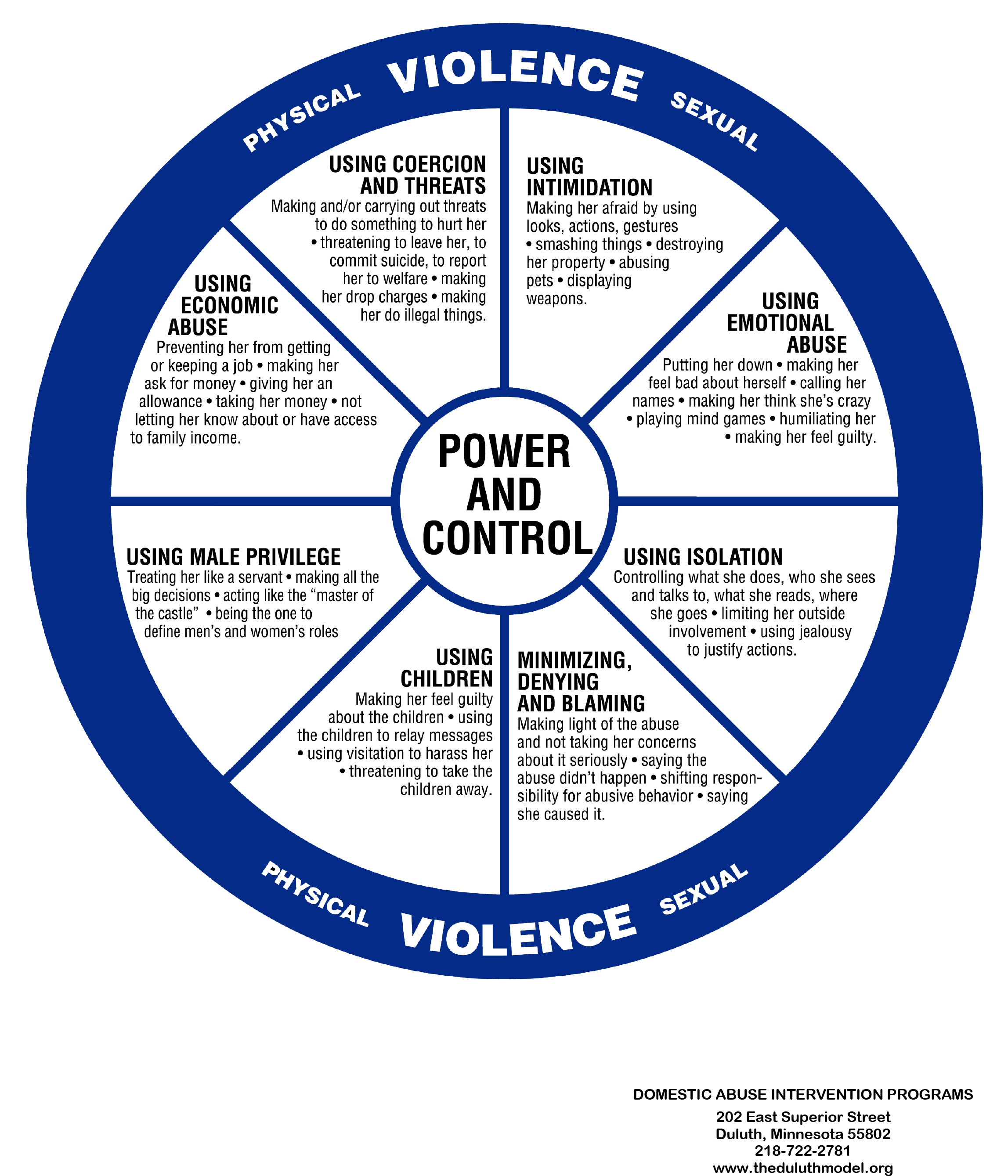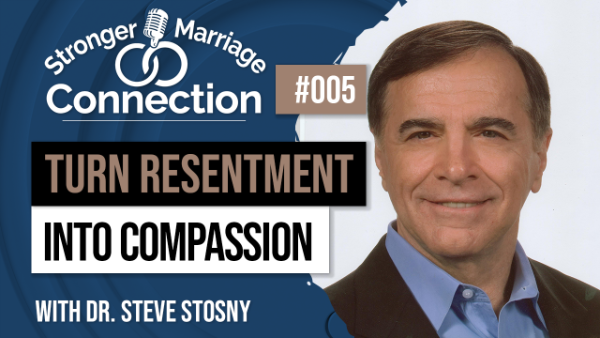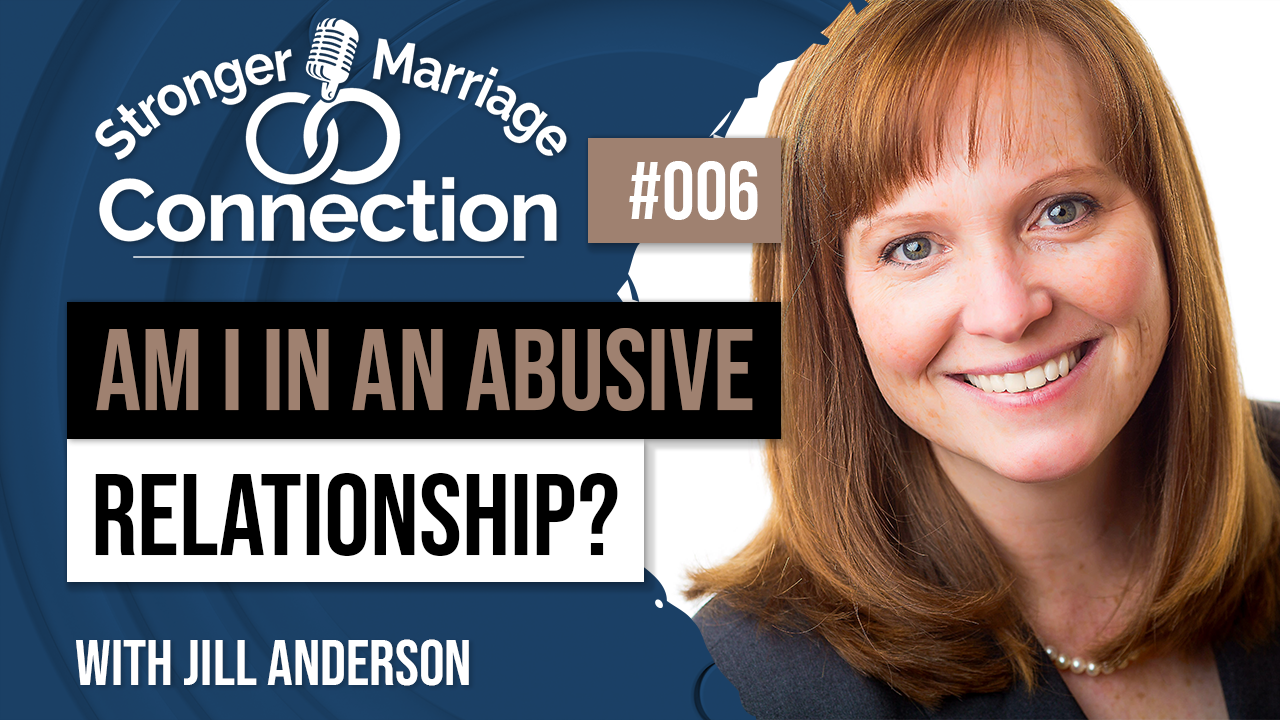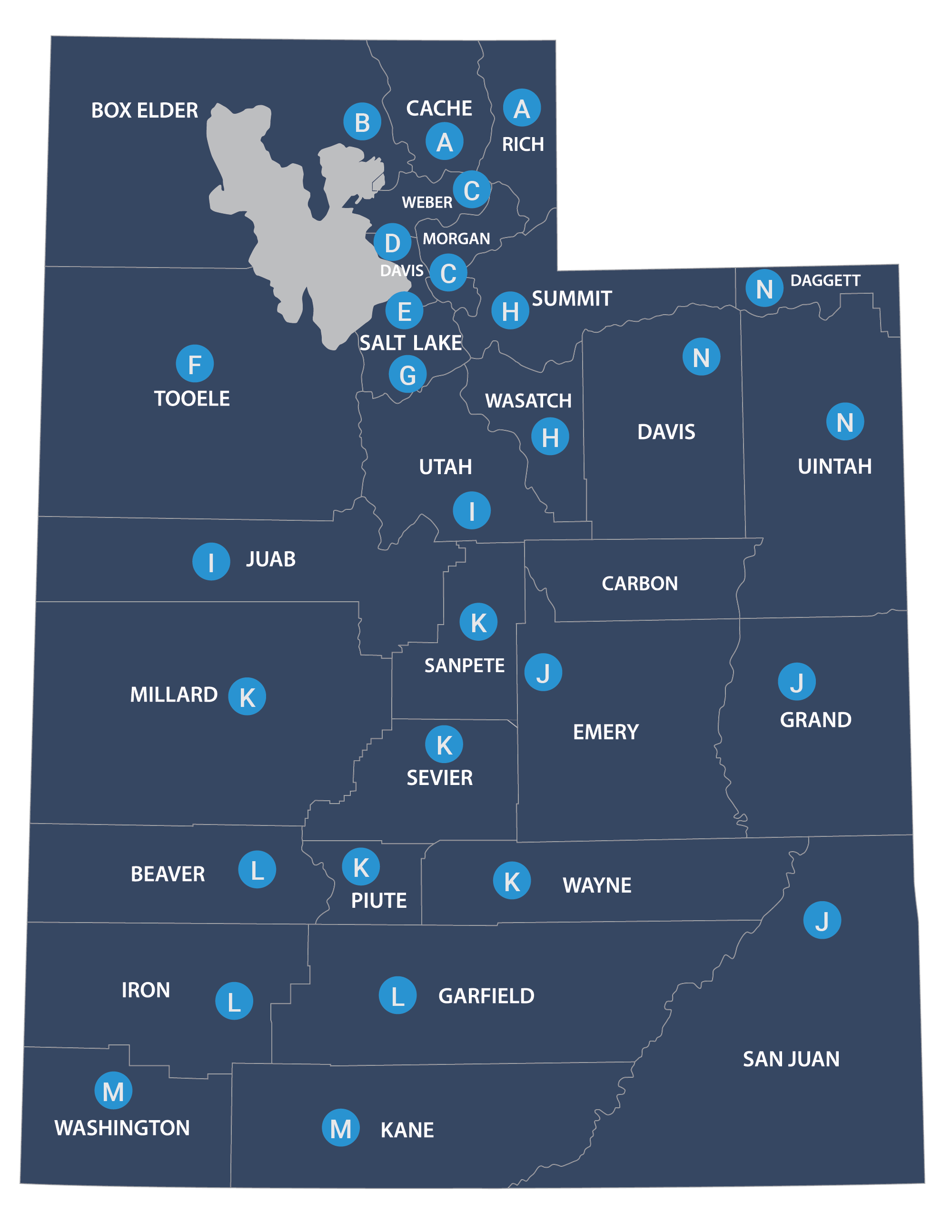Recognizing Signs of Abuse
One of the primary objectives of the Utah Marriage Commission is the prevention of domestic violence and abuse in all its forms. While we promote the development and maintenance of healthy marriages and stable families, we invite our audience to carefully consider elements of power and control that may be present in their relationships. We encourage those who recognize unhealthy patterns of behavior to seek help from qualified professionals. To survivors we say, “We believe you and there is hope."
Power and Control Wheel

What is Domestic Violence?
Domestic Violence or intimate partner violence is the willful intimidation, physical assault, battery, sexual assault, and/or other abusive behavior as part of a systematic pattern of power and control perpetrated by one intimate partner against another. It includes physical violence, sexual violence, psychological violence, and emotional abuse.
Domestic violence crosses all intersections of race, class, sex, gender, gender identity, sexual orientation, and ability.
Domestic violence includes intimate partners, roommate, an adult child who lives with his/her parents, or a parent who is abused by his/her adult children.
Types of Domestic Violence
Physical abuse includes, but is not limited to:
- Hitting, punching or kicking
- Biting
- Pulling hair
- Chocking or Strangling
- Restraining
- Throwing objects
- Using a weapon against another person
This abuse may cause injuries that can range from bruises and broken bones to permanent disabilities and even death. It does not include self-defense against the aggressive behavior of another individual.
Sexual abuse, rape, and sexual assault, are very common in domestic violence and intimate partner relationships.
Sexual abuse can include:
- Forced sexual acts
- Rape
- Unwanted use of pornography
- Unwanted photographing or videotaping of sexual acts
- Forced sexual interaction with others
Sexual violence is often used in conjunction with physical violence and always includes emotional abuse, like coercion and threats.
Emotional abuse is a very traumatic form of abuse as it causes deep emotional scars. Emotional abuse is cruel and degrading, and can include such behaviors as:
- Name calling
- Public humiliation
- Continuous criticism or insults
- Trivializing someone’s gender
- Trivializing someone’s activities/interests
- Ordering
- Isolation
- Controlling behaviors
- Belittlement
- Withholding affection
- “Silent treatment” or ignoring
- Lying to or about
Psychological abuse is intended to cause fear, terror, and confusion. Many people who have experienced psychological abuse have described it as “making me crazy” with things such as mind games and constantly redefining reality. Some examples of psychological abuse may include:
- Changing his/her description of events
- Continually changing the “rules”
- Wild and unpredictable mood swings
- Threats to:
- Kill you or themselves
- Take the children
- Ruin your financially
- Have you deported
- Report you to law enforcement or child protective services
- Stalking
- Pet abuse
Stalking is a form of psychological abuse that goes beyond simply “following someone around.” Many stalkers will go to great lengths to track exactly where someone is, who she/he is seeing, and what she/he is doing. Stalkers are often proficient in advanced technology, and they use this to track or videotape their victims, listen to telephone conversations, and/or hack into someone’s computer to see what websites have been visited, e-mails have been sent, and any other activity that is taking place on that computer.
Stalking may also occur in cases of domestic violence, when a person is stalked by his/her abuser. People who are stalked by a current or former intimate partner are at increased risk of being killed by that person. According to the National Center for Victims of Crime, 76% of women killed by an intimate partner were stalked by the partner before they were killed.
Neglect is generally associated with children, but neglect can also happen with adults. Usually when there is neglect of an adult, it is an elderly or vulnerable adult who does not have the capacity to provide for his/her own needs, but it can also affect adults who are not vulnerable or elderly. Neglect can include some behaviors such as:
- Withholding food
- Withholding medication, medical equipment, or medical treatments
- Lack of proper hygiene assistance
- Leaving an elderly or vulnerable adult alone for extended periods of time
- Abandoning an elderly or vulnerable adult altogether
- Administering much larger doses of medication than are required
- Leaving someone for an extended period of time without food, water, suitable means of transportation, etc.
These forms of neglect can cause physical and emotional trauma to the victim, and can eventually lead to death in severe cases.
Financial abuse is a common method an abusive individual might use to make it more difficult for a person to be independent, which leaves the person with no choice but to stay in a relationship. Financial abuse and exploitation can take many forms, but the most common ones include:
- Taking control of a person’s income
- Not allowing a spouse or partner to have a job
- Purposely destroying a person’s credit
- Denying access to household funds
Financial exploitation goes beyond financial abuse because it involves not only taking control of another ‘s finances, but doing so by using a position of trust from an elder or vulnerable adult to gain access to and control over that person’s money and/or assets.
Episodes Related to Unhealthy Relationship Behaviors


Domestic Violence Services Providers
Nonprofit services providers Start By Believing and are local experts on helping individuals and families who have been impacted by domestic violence. Below is a list of Utah’s nonprofit domestic violence support service providers.

Online: www.centralutahcrisisintervention.org
Support Phone-line: 1-800-343-6302
Online: www.canyoncreekservices.org
Support Phone-line: 435-233-5732
Utah DV LINKLine
National DV Hotline

